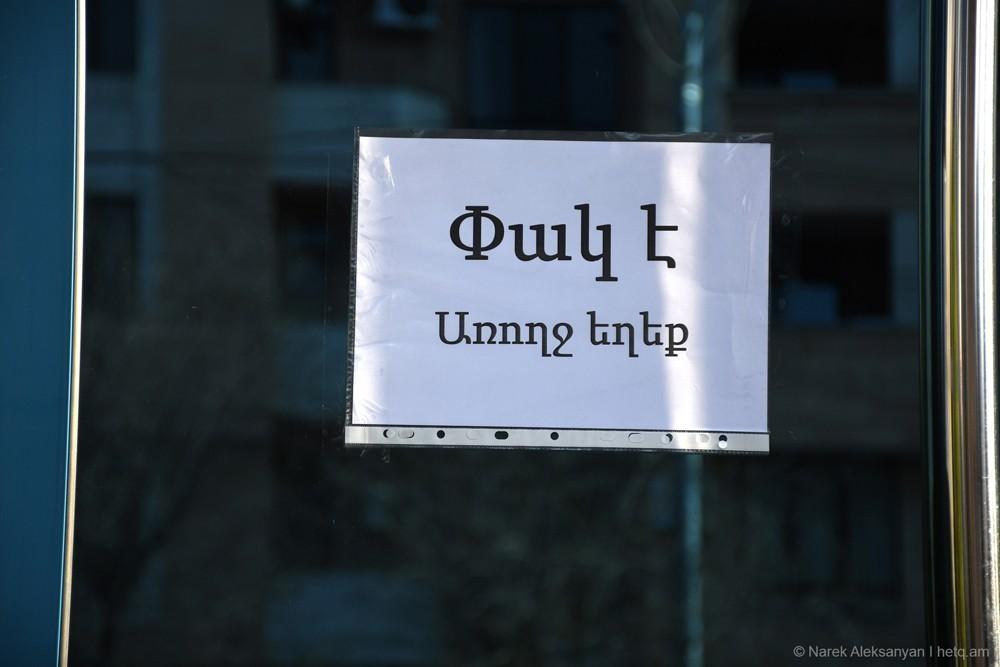
Armenia: Daily Wage Earners Feeling the Pinch as Savings Dry Up
Hrachuhie Hovvyan worked as a nanny, making 3,500 drams ($7) daily, until Armenia declared a coronavirus state of emergency on March 16.
The 59-year-old, who takes care of her bedridden 84-year-old mother, was the family’s only breadwinner.
Mrs. Hovvyan says the family now gets by on a paltry amount of savings and her mom’s pension.
“It’s tough going,” says Mrs. Hovvyan. “We’re waiting for the pension to give us a bit of breathing room.”
If the state of emergency continues and people are forced to remain at home, she’s at a loss as to how they’ll survive.
“Daily wages mean we live from day to day. If those wages dry up, we’ll have to live on a minimum level,” says Mrs. Hovvyan.
Lilit Sargsyan says that had she known of the coming crisis she would have stocked some money away for the long haul.
None of Sargsyan’s family of four have worked for the past sixteen days. Two are daily wages earners; one a part-timer. They used to work in the service sector and various commercial stores.
“For the first two days, when it wasn’t yet clear whether the food service outlets would be closed or not, we went to work and made a little money. We got by for a week. I then had to take out loans. We did not know that a state of emergency would be declared or that we wouldn’t work for such a long time,” says Lilit Sargsyan.
Her mother worked as a cleaning attendant. She got her April salary from her employer in order to buy food. She also took out a loan.
Lilit Sargsyan will soon receive her 26,500-dram monthly disability pension. She’ll use it and some of her sister’s wages to pay off the loan and do some shopping.
Although Lilit Sargsyan is a single mom, she’s not eligible for government social support as she was not fired between March 13-25.
“The financial difficulty of day-care workers is that they support large families and spend the money they earn daily, in a day or two. When the virus started, we hoped it would get better the next day, but we never imagine that everything would close.” says Lilit Sargsyan.
Ani Khachatryan's family is also spending its savings judiciously. All the family members who used to work are now at home.
“My sister worked in the service sector, getting paid daily. I make handmade items for sale. We’ve been home for 18 days now, and no one has been able to work. We have a little money saved up that we spend on food. We couldn't even pay for electricity. My friends had to pay my internet bill,” says I asked my friends for internet service and they paid online,” says Khachatryan.
There are five in the family: Ani, her 11-year-old son, a mother with health problems, and two sisters.
Although the family is spending wisely, Ani Sargsyan believes she’ll be forced to borrow money from friends in the coming days.
“Given the financial situation, I can't even work on my handicrafts. I had orders and had to purchase supplies. But I used the money to buy food,” she says.
Ani Sargsyan is eligible to apply for today's government-approved support program that provides non-working parents with a one-time payment of 26,500 drams for each child under the age of eighteen.
Top photo reads - We're closed. Be Healthy.
 Videos
Videos Photos
Photos
Write a comment